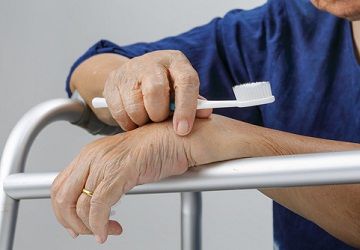Study: Nursing Home Patients Are Skipping Dental Care, Even When It's Free
This study looked at about 2,500 patients at one New York assisted-living facility between 2008 and 2012.

Even when it’s free of charge, it seems that some assisted-living patients may be electing not to receive the dental care that they require.
A recent University at Buffalo study finds that almost 90 percent of one long-term care facility’s patients didn’t elect to receive dental services, even when they came at no cost to the patients.
Related: Groundbreaking Study Shows that E-cigarettes Damage Gums, Teeth
The study was published in October in Special Care in Dentistry, according to a University at Buffalo news release. The study looked at medical records from more than 2,500 patients at the Brothers of Mercy Nursing and Rehabilitation Center in Clarence, NY, spanning the years from 2008 to 2012. Researchers say that 10 percent of patients in the study received at least 1 dental exam.
On average, researchers say, patients stayed at this particular facility for 2 years. About half stayed less than a month. Among patients who stayed for just a month, 7% made use of free dental services. Thirty percent of those who stayed from a month to 2 years elected to receive treatment.
Frank A. Scannapieco, DMD, PHD, and lead investigator in the study, said in the news release that the study shows a lack of “appreciation for dental care.”
“The perception is that if you don’t have pain, you don’t have a problem,” Dr. Scannapieco said.
There was a bright spot in the research, the news release says. The longer patients stayed in this particular facility, the more likely they became to take advantage of free dental care. However, even if patients stayed in assisted living for years, only 55% received oral health care.
Related: Animal Study Shows that Black Raspberries Fight Oral Cancer
Age also seemed to have a positive impact, researchers say. Those in the assisted living facility who were age 76 or older were twice as likely to receive dental treatment.
When considering why length of stay seems to affect dental care acceptance, Dr. Scannapieco says it may be because those in assisted living for shorter periods of time tend to have more pressing medical concerns.
“These patients were also likely to have their own dentists outside of the facility,” the news release says.
There are also other factors that need to be considered, Dr. Scannapieco says, such as the cost of care, particularly since Medicare does not cover a lot dental procedures. However, it does cover exams. Dr. Scannapieco adds that reinforcing the oral health/overall health connection may lead to an increase in those seeking dental care.
“We need to do the research that answers if excellent dental health translates into prolonged life, health, and perceptions of quality of life,” he said.
ACTIVA BioACTIVE Bulk Flow Marks Pulpdent’s First Major Product Release in 4 Years
December 12th 2024Next-generation bulk-fill dental restorative raises the standard of care for bulk-fill procedures by providing natural remineralization support, while also overcoming current bulk-fill limitations.